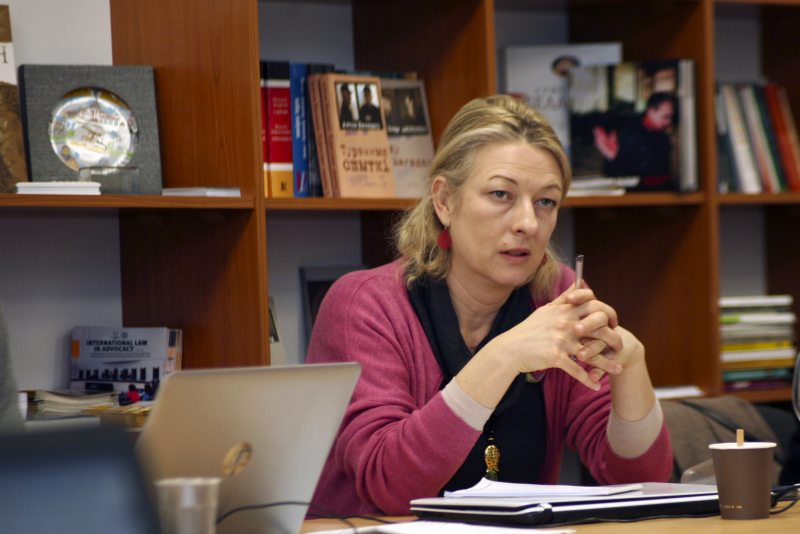UN expert: Belarus misuses counter-terrorism and anti-extremism legislation to stifle dissent
The Belarusian authorities are misusing counter-terrorism and anti-extremism legislation to further purge civic space, suppress freedom of expression and eradicate political opposition, a UN expert said.
“Many opposition figures, civil society activists, human rights defenders, lawyers and journalists have been abusively labelled as “extremists”, detained and prosecuted since 2020. Harassment, repression and fear compelled those who are not behind bars to seek refuge abroad,” said Anaïs Marin, the Special Rapporteur on the human rights situation in Belarus.
In her report to the General Assembly, Marin noted that Belarusian legislation provides loose definitions of “terrorism” and “extremism” which can be interpreted to include activities related to the legitimate exercise of human rights.
The expert warned that convictions for terrorism have multiplied against individuals who sought to document or obstruct the transit of Russian troops and military equipment for the war in Ukraine through Belarussian territory. The scope of the death penalty, applied in Belarus notably for terrorism, has reportedly been extended to include “planned” or “attempted” acts of terrorism, as well as high treason.
“The weaponisation of legislation is possible because there are no guarantees of fair trial in Belarus, while court hearings behind closed doors and non-disclosure agreements imposed on lawyers are widespread,” the Special Rapporteur said.
“Individuals and organisations accused by the State Security Committee (KGB) of involvement in terrorist or extremist activities are blacklisted, harassed, shamed and sanctioned outside of any judicial process,” Marin said.
“The Ministry of Information maintains a list of 'extremist materials' that has grown exponentially in recent years,” she said, “including social networking accounts, websites of human rights organisations, independent trade unions and media, as well as literature or artwork deemed extremist because it is critical of the Government or its policies.”
The expert stressed that these practices are intended to stifle any dissent in the country, where civic space has been purged in the last two years. She expressed concern about legislative changes that appear to target the hundreds of thousands of Belarusians who have been forced into exile and tried in absentia.
“Those found guilty of ‘extremism’ or ‘terrorism’ risk being stripped of their citizenship and having their assets and properties in Belarus seized,” she said.
The Special Rapporteur called on the Belarusian authorities to end the misuse of counter-terrorism and anti-extremism legislation and free all those arbitrarily detained or sentenced on politically motivated charges.


















